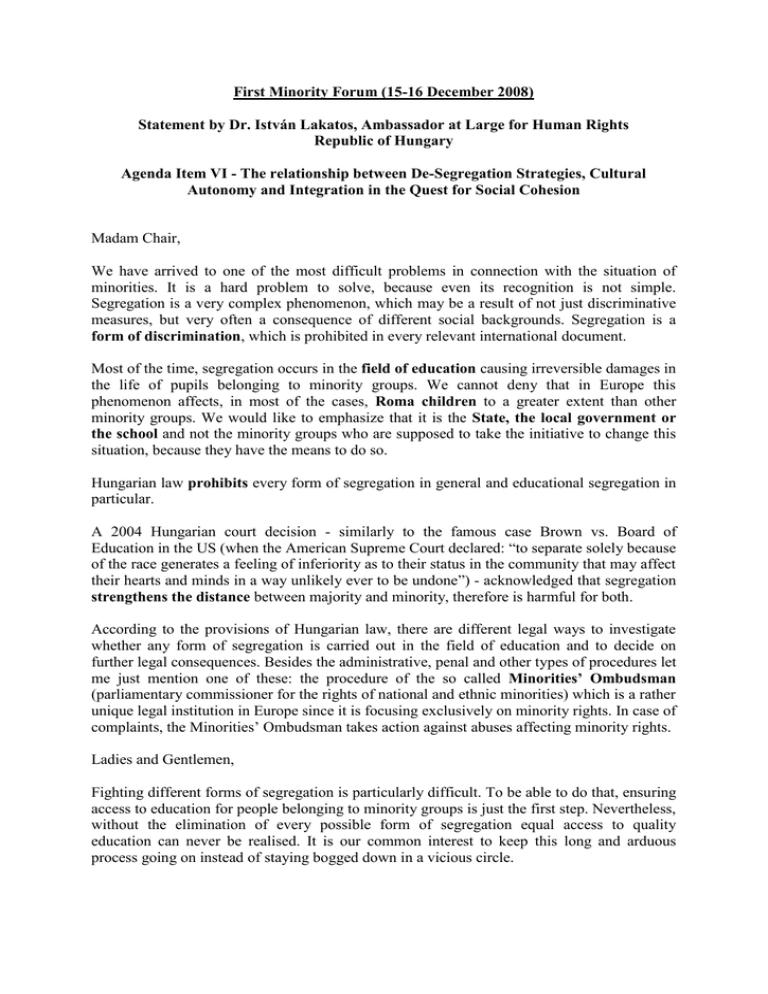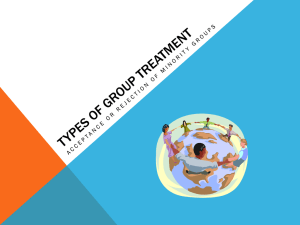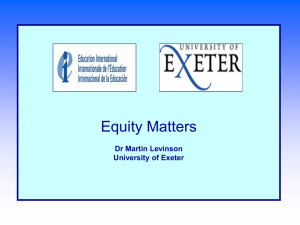First Minority Forum (15-16 December 2008)
advertisement

First Minority Forum (15-16 December 2008) Statement by Dr. István Lakatos, Ambassador at Large for Human Rights Republic of Hungary Agenda Item VI - The relationship between De-Segregation Strategies, Cultural Autonomy and Integration in the Quest for Social Cohesion Madam Chair, We have arrived to one of the most difficult problems in connection with the situation of minorities. It is a hard problem to solve, because even its recognition is not simple. Segregation is a very complex phenomenon, which may be a result of not just discriminative measures, but very often a consequence of different social backgrounds. Segregation is a form of discrimination, which is prohibited in every relevant international document. Most of the time, segregation occurs in the field of education causing irreversible damages in the life of pupils belonging to minority groups. We cannot deny that in Europe this phenomenon affects, in most of the cases, Roma children to a greater extent than other minority groups. We would like to emphasize that it is the State, the local government or the school and not the minority groups who are supposed to take the initiative to change this situation, because they have the means to do so. Hungarian law prohibits every form of segregation in general and educational segregation in particular. A 2004 Hungarian court decision - similarly to the famous case Brown vs. Board of Education in the US (when the American Supreme Court declared: “to separate solely because of the race generates a feeling of inferiority as to their status in the community that may affect their hearts and minds in a way unlikely ever to be undone”) - acknowledged that segregation strengthens the distance between majority and minority, therefore is harmful for both. According to the provisions of Hungarian law, there are different legal ways to investigate whether any form of segregation is carried out in the field of education and to decide on further legal consequences. Besides the administrative, penal and other types of procedures let me just mention one of these: the procedure of the so called Minorities’ Ombudsman (parliamentary commissioner for the rights of national and ethnic minorities) which is a rather unique legal institution in Europe since it is focusing exclusively on minority rights. In case of complaints, the Minorities’ Ombudsman takes action against abuses affecting minority rights. Ladies and Gentlemen, Fighting different forms of segregation is particularly difficult. To be able to do that, ensuring access to education for people belonging to minority groups is just the first step. Nevertheless, without the elimination of every possible form of segregation equal access to quality education can never be realised. It is our common interest to keep this long and arduous process going on instead of staying bogged down in a vicious circle.


